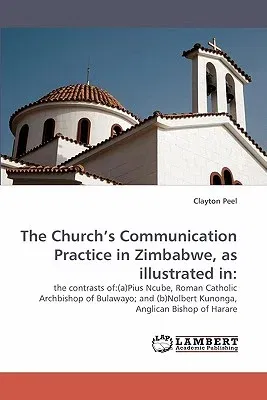Clayton Peel
(Author)The Church's Communication Practice in Zimbabwe, as Illustrated inPaperback, 13 January 2010

Qty
1
Turbo
Ships in 2 - 3 days
In Stock
Free Delivery
Cash on Delivery
15 Days
Free Returns
Secure Checkout
Print Length
104 pages
Language
English
Publisher
LAP Lambert Academic Publishing
Date Published
13 Jan 2010
ISBN-10
3838338170
ISBN-13
9783838338170
Description
Product Details
Authors:
Book Format:
Paperback
Country of Origin:
US
Date Published:
13 January 2010
Dimensions:
22.86 x
15.24 x
0.64 cm
Genre:
Christian
ISBN-10:
3838338170
ISBN-13:
9783838338170
Language:
English
Location:
Saarbrucken
Pages:
104
Publisher:
Weight:
163.29 gm

